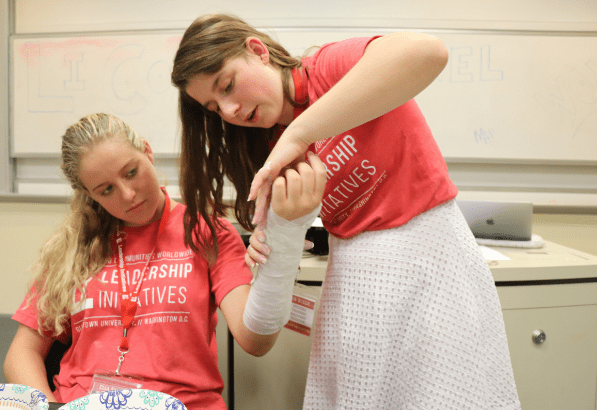
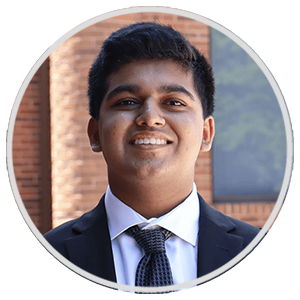
Collaborated with Public Health Experts from distinguished organizations like the WHO, UNICEF, and the NIH
Diagnosed a real patient from the Nagari Medical Clinic & Maternity Ward in Bauchi State, Nigeria.
Developed a public health campaign for communities in Sub-Saharan Africa for implementation in 2022.

Parthav Gavini
William Mason High School
Class of 2025
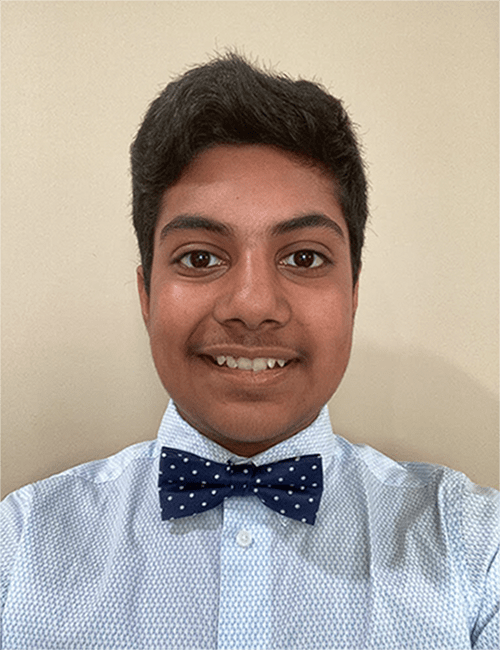
Read more about Parthav here.


Parthav Gavini is excited to be participating in the Advanced Medical & Public Health Internship this summer. He is ecstatic to have the opportunity to develop crucial medical skills while also being able to diagnose a real patient and create a public health campaign to better the lives of those in sub-Saharan Africa.
As a rising sophomore at William Mason High School, Parthav is a dedicated student who is enrolled in Honors and Advanced Placement courses. Parthav is very proud of his participation in the National Honors Society and Speech & Debate. Parthav is a chapter officer for his school's HOSA club and has qualified for the 2022 International Leadership Conference. Parthav also volunteers at his local hospital weekly and dances as part of the Gajdi Jawani Bhangra team.
In the future, Parthav would like to study Surgery. His interest in the medical field and surgery began at an early age when he visited his grandparents' hospital in India. Every time he visits he sees the struggles people are going through, the help his grandparents provide, and the many medical procedures that are necessary. Inspired by his family history in the healthcare field and fueled by a passion to save lives, Parthav aspires to pursue a career in medicine and eventually become a surgeon to help those that need it the most across the globe.
Read more about Parthav's achievements here.
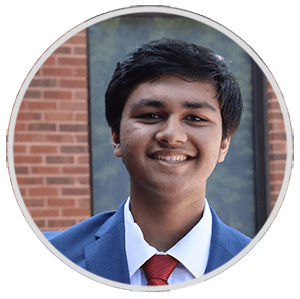
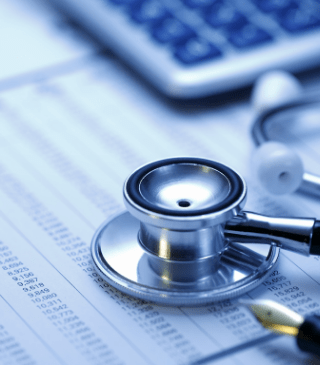

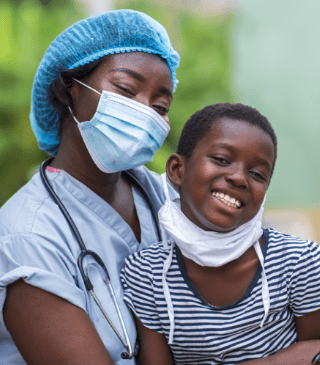

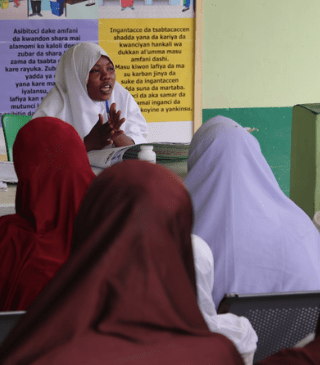

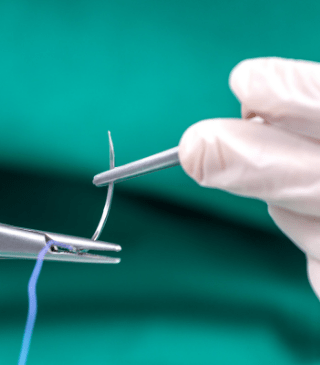

My Patient Diagnosis
My Campaign Proposal
My Campaign Presentation
Medical Training Highlights
My Public Health Training


In Partnership With The Nagari Medical Clinic & Maternity Ward In Bauchi State, Nigeria
The Advanced Medical & Public Health Internship diagnosis is the first-ever program of its kind. I not only got to work with the top medical professionals from around the world, but also save lives.
Through Zoom, I was connected with a clinic and maternity ward in Bauchi State, Nigeria where I was able to interact with my patients in real-time. Supervised by a doctor in Nigeria, I examined & diagnosed my patient using my diagnostic training on the top 4 leading causes of death in Nigeria; malaria, typhoid fever, nutritional anemia, & acute respiratory infections (ARI).
These patients were locals from Bauchi State that were all ill and would normally not be able to afford medical treatment as they earn $1.25 a day or less. In return for working with our participants, all of their treatments were funded by Leadership Initiatives.
My Diagnosis
In 2022, Leadership Initiatives was able to fund the treatment of all patients participating in our program.

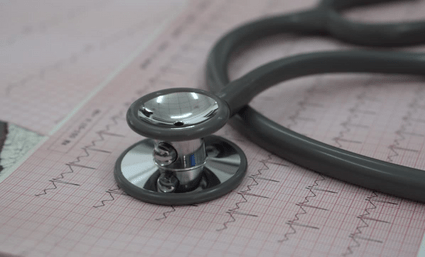
My Patient's
Diagnosis
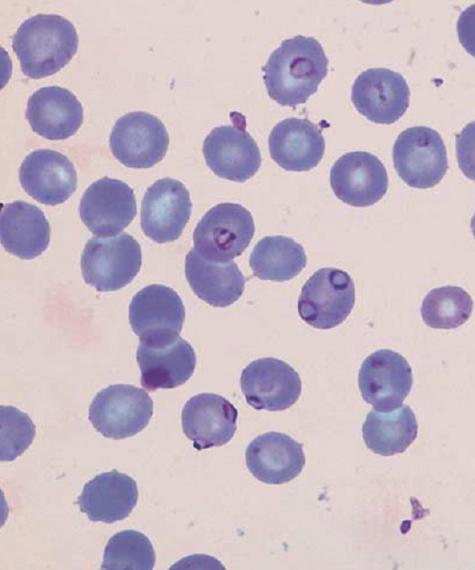

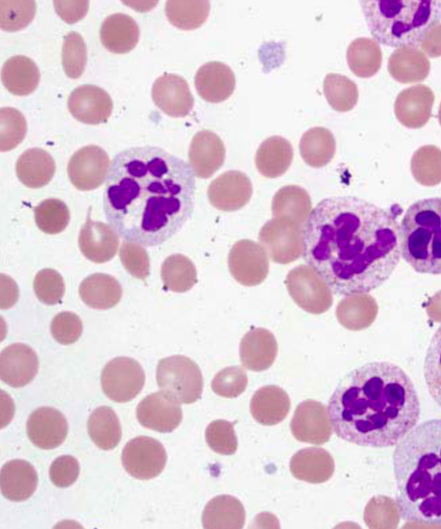

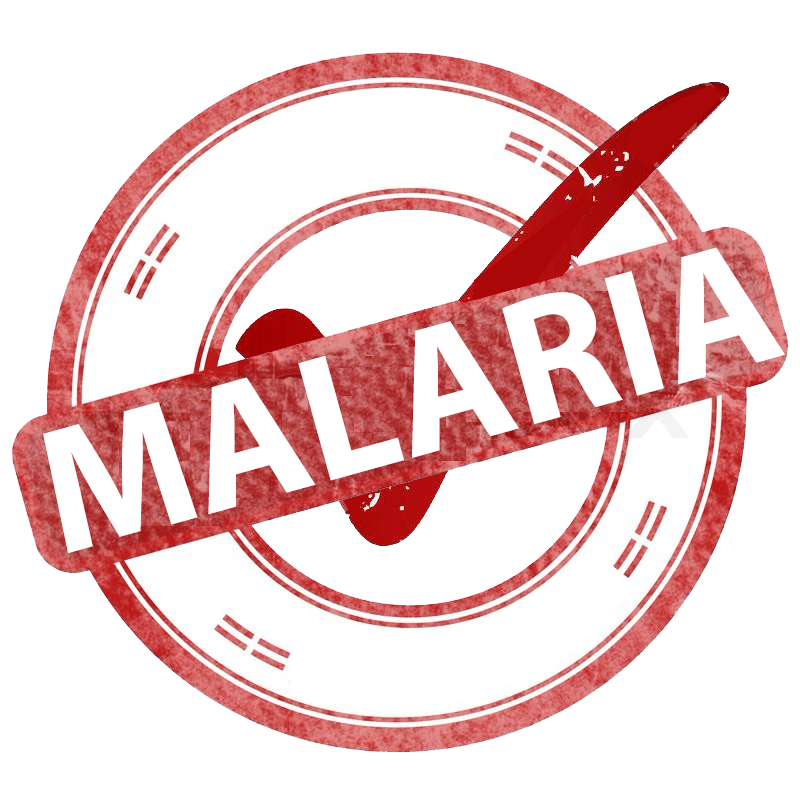
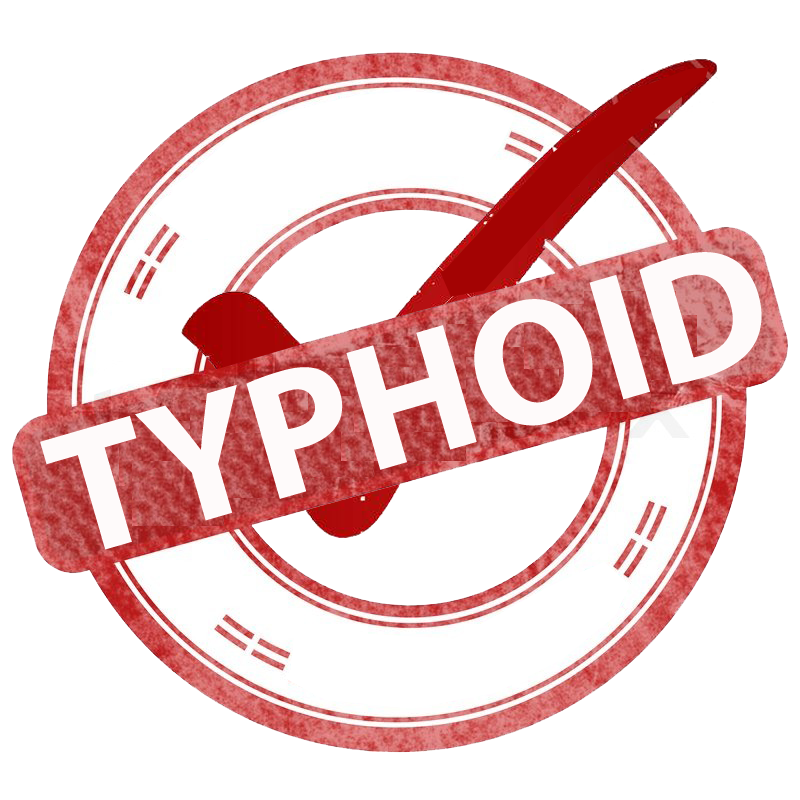
After running the appropriate diagnostic tests, I concluded that Abdurrahaman was suffering from malaria and typhoid. To treat the malaria, I prescribed CoArtem and to treat the typhoid, I prescribed an IV antibiotic.
In addition to these treatments, I recommended various methods of prevention for each disease. To prevent future cases of malaria, I suggested that the patient avoid mosquito bites through clothing, like long sleeves and pants, mosquito nets, and malaria prevention drugs, if accessible. For typhoid, I emphasized the importance of hygiene and sanitation practices, like hand washing.
Abdurrahaman Shayau is a 16 year old high school student. He lives with his parents and siblings in Federal Low-Cost in Bauchi State, Nigeria. Acdurrahaman presented with fever, headache, stomach pain, and generalized body weakness.
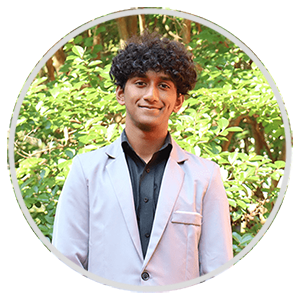
I learned about four of the most pertinent diseases in the developing world from medical professionals including Dr. Aisha Garba-Aliyu, medical doctor and public health expert in Nigeria.
I developed cultural competencies and a global perspective to assess the structural and social determinants of health that underlie these diseases.
I had the unique opportunity to learn about and practice patient examination, evaluation, and diagnosis skills which contributed to the expansion of my preparedness for a future in the medical field.
As a group, we explored the historical, ethical, and cultural implications as well as the medical terminology and procedures pertaining to each of the 4 diseases.
I now have the skills to recognize, diagnose, and recommend both treatment and prevention methods for each of the four diseases.
I gained a better understanding of the signs and symptoms correlated with different stages and severities of Malaria, Typhoid Fever, Acute Respiratory Infection, and Nutritional Anemia.
My Public Health Campaign
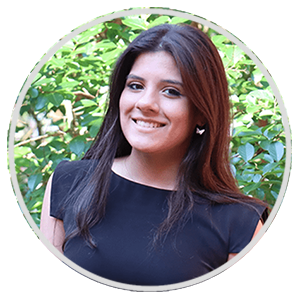
Leadership Initiatives is a 501(c)(3) nonprofit organization that is dedicated to creating future leaders across the globe through experiential learning.
View my public health campaign presentation here.
In the Advanced Medical & Public Health Internship, I worked directly with development and public health experts to create an education public health campaign. This campaign will target underserved communities in Nigeria and will be published and widely distributed in the area to increase awareness.
My Public Health Campaign Presentation

At the conclusion of the internship, I presented my research proposal to a panel of distinguished judges.
Internship Highlights
Experts & Mentors
Diagnostic Training
Nigerian Medicine
Suturing
Triage
I heard from top medical professionals in a variety of fields and specialties including surgery, emergency medicine, and medical research.
Mitchell Kannry, Fire Marshal at DC. Fire and EMS, spoke to us about careers in emergency response and how field medicine is done when trauma is involved.
Dr. Rachel Selekmen, a pediatric urologist and telehealth specialist, also spoke to us about her career trajectory, her studies, and a day in her life as a surgeon at Children’s National Hospital in DC.
Additionally, I had the unique opportunity to speak to leading public health experts from WHO, UNICEF, and the NIH. Their knowledge helped guide me determine the focus of my public health campaign.
By working with experts, I gained a better understanding of the responsibilities associated with each medical specialty and how to go about pursuing those particular careers.
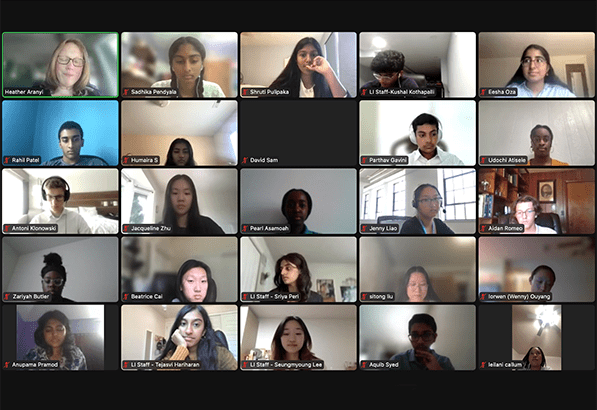
Dr. Garba-Aliyu taught a series of workshops that demonstrated the proper way to interview a patient and explained various techniques to investigate disease.
Throughout the internship, I developed skills in the collection, interpretation, and critical analysis of patient data.
With Dr. Garba-Aliyu's guidance, I was able to improve my ability to synthesize and evaluate information, which is essential in the diagnostic process.
These exercises helped me advance my communication skills to appropriately evaluate patients and best understand their symptoms.
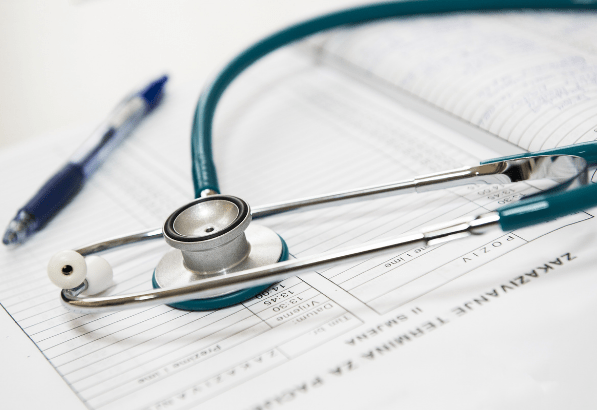
Through interactive educational seminars, I got an insight into the history of medical practices in Nigeria.
Dr. Garba-Aliyu provided me with the current practices in Nigerian medicine and a rich understanding of the growing mistrust of Western biomedical medicine in the region.
By meeting with actual patients, I gained insight into the lives of people living in Nigeria.
Understanding the lived experiences of these individuals allowed me to gain a critical perspective of what practices I could implement into my campaign to reduce the spread of infectious disease.
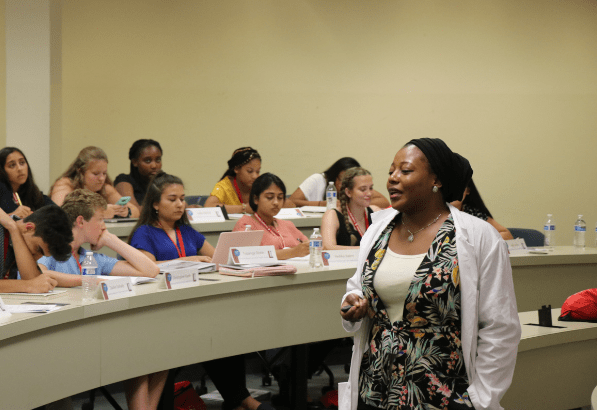
In one of the leading interactive activities of the internship, I learned and practiced multiple suturing techniques on a human-skin model.
While working on suturing, I employed instruction from medical professionals on the varying techniques and forms of suturing.
This activity provided insight into the primary tasks required of doctors and nurses, while also learning about some of the more intricate parts of medicine.
Along with suturing, I also practiced making plaster casts and other medical procedures. All of these activities helped prepare me for a career in medicine and strengthened my interest in the field.
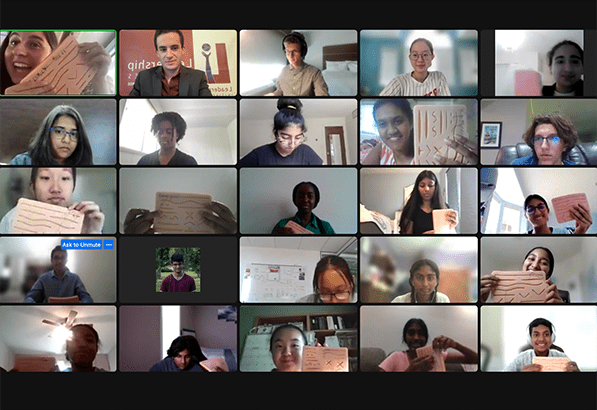
Through the internship, I acquired basic clinical skills including taking vital signs, evaluating symptoms, and performing neurological exams.
When discussing vitals signs, we explored different methods of taking pulse. After demonstrating competency using each method, I am confident in my ability to calculate heart rate in any patient.
When performing neurological exams, we utilized a procedure that assesses the twelve cranial nerves. These nerves help facilitate normal and healthy bodily functions, and it is critical to evaluate their function in triage.
Along with these basic procedures, I had the opportunity to learn specialized skills like suturing and plaster casting.
